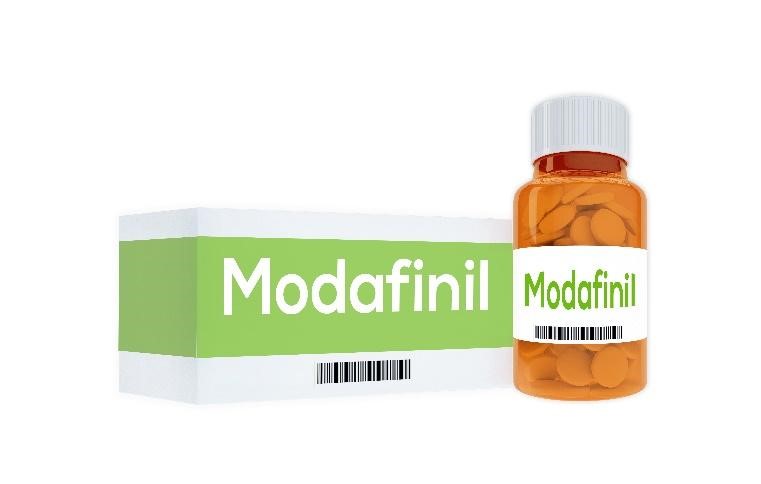
The world’s favorite smart drug is much safer than Adderall and a promising treatment for substance abuse and neurodegenerative disorders—so why can’t we use it?
Chances are you’ve heard of the drug modafinil. You know the one: the “smart drug,” sometimes called the “Limitless” pill, that turns sleep-deprived college students and young professionals into energetic workhorses.
It turns out modafinil can do even more: It’s a promising treatment for stimulant drug abuse and neurodegenerative disorders like Alzheimer’s and Parkinson’s. It’s also been shown to be a normal cognitive function in sleep-deprived populations (everyone these days). It is the drug of choice for astronauts on the International Space Station and the armed forces’ members on long-duration missions.
Modafinil Addiction
While modafinil is generally considered to have a lower risk of addiction compared to traditional stimulants like amphetamines or cocaine, there is still a potential for misuse and psychological dependence, especially in individuals who use the drug off-label or without a prescription. The risk of addiction is often related to its effects on dopamine levels in the brain, a neurotransmitter associated with reward and pleasure pathways.
Key Points on Modafinil Addiction
- Psychological Dependence: Individuals may become psychologically dependent on modafinil, especially if they use it to enhance cognitive performance, stay awake for extended periods, or for the euphoria it can sometimes produce at higher doses. They might feel unable to perform daily tasks or work effectively without it.
- Misuse and Off-Label Use: Modafinil is sometimes used off-label for cognitive enhancement among students, professionals, and others looking to increase wakefulness and concentration. This off-label use increases the risk of developing a psychological dependency.
- Physical Dependence and Tolerance: While physical dependence on modafinil is less common than with other stimulants, some users may develop tolerance, meaning they require higher doses to achieve the same effects. This can potentially lead to more severe side effects and increase the risk of psychological dependence.
- Withdrawal Symptoms: As mentioned, withdrawal symptoms can occur if the use of modafinil is stopped abruptly, especially after prolonged use or high doses. While generally mild, these symptoms can include fatigue, depression, and sleep disturbances.
Reducing the Risk
- Prescription and Monitoring: Using modafinil under the guidance of a healthcare professional, for approved indications, and at prescribed doses can significantly reduce the risk of addiction. Regular monitoring by a healthcare provider can also help identify any signs of misuse or dependency early on.
- Awareness and Education: Understanding the potential risks associated with modafinil, including the risk of psychological dependence, can help individuals make informed decisions about its use and recognize when to seek help.
- Avoiding Self-Medication: Individuals should avoid using modafinil for self-medication purposes, especially for cognitive enhancement or to delay sleep. Using the drug for its approved purposes and within prescribed guidelines is crucial.

Modafinil Withdrawal
Withdrawal symptoms from modafinil can vary in intensity and duration based on the individual’s usage pattern, dosage, and personal sensitivity. These symptoms are typically less severe than those associated with stronger stimulants. Potential withdrawal symptoms may include:
- Fatigue or increased need for sleep: As the body adjusts to the absence of modafinil, individuals may feel more tired than usual or have a greater need for sleep.
- Decreased motivation: Some people might experience a temporary decrease in motivation or return of symptoms related to their sleep disorder.
- Difficulty concentrating: Withdrawal can lead to difficulties with focus and concentration, although this is generally temporary.
- Mood changes: Mood swings, irritability, or anxiety may occur but are usually mild compared to withdrawal from other substances.
- Headaches: Some individuals report headaches during withdrawal.
To minimize withdrawal symptoms, healthcare providers often recommend gradually tapering off modafinil rather than stopping abruptly. This approach allows the body time to adjust to decreasing doses, potentially reducing the severity of withdrawal effects.
It’s important to consult with a healthcare professional for guidance on stopping or changing the dosage of modafinil, as individual needs can vary. They can provide a tailored tapering schedule and support to manage withdrawal symptoms effectively.
Modafinil and alcohol
Mixing modafinil and alcohol is generally not recommended due to potential risks and unpredictable effects on the body and mind. While some individuals may not immediately experience adverse reactions, the combination can have several implications:
1. Increased Dehydration
Both modafinil and alcohol can cause dehydration. Modafinil can lead to decreased appetite and sometimes neglect of regular water intake, while alcohol is a diuretic, which increases fluid loss. Combining the two can amplify these effects, leading to significant dehydration.
2. Impaired Judgment and Cognitive Function
Although modafinil is known to enhance alertness and cognitive function, alcohol has the opposite effect by impairing judgment and reaction time. Mixing the two can lead to a false sense of sobriety, where the user might not accurately judge their level of impairment, potentially leading to risky behaviors.
3. Increased Side Effects
Combining alcohol with modafinil may increase the likelihood of experiencing side effects from either substance. These can include nausea, headache, dizziness, and anxiety. The interaction might also exacerbate the negative effects of alcohol on the liver, especially with prolonged use.
4. Mood and Sleep Disruptions
Alcohol can affect mood and sleep patterns, leading to potential disturbances. While modafinil is used to promote wakefulness, it can interfere with natural sleep cycles. Consuming alcohol while taking modafinil can further disrupt sleep quality and duration, possibly leading to mood swings and decreased effectiveness of the medication.
If you find yourself struggling with an addiction to modafinil, it’s crucial to seek professional help. Addiction, regardless of the substance, can have profound impacts on your physical health, mental well-being, and overall quality of life. The United Recovery Project is a reputable rehab that offers comprehensive treatment programs tailored to individual needs, including those dealing with prescription medication addiction like modafinil.


